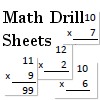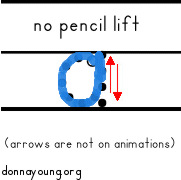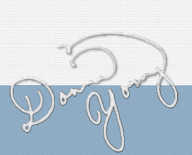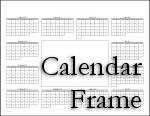Streams of Civilization Volume Two
ISBN 0-915134-45-4
438 Pages
Volume 2 is subtitled Cultures in Conflict Since the Reformation Until the Third Millennium After Christ
This book contains 17 chapters plus an introductory and a forward. I highly recommend that you also purchase the Answer Key for volume two. The answer key contains all of the answers to the questions that are in the book.
As you look through this book you may notice that it contains a timeline before each chapter. At the end of each chapter there are projects from which your student can choose and the vocabulary words are listed as well as people and groups.
Scheduling Streams II
I wanted to provide a schedule for this book, but I didn't want to eliminate parental freedom or control of the course. When you look at the schedules the first thing that you will notice is that there are no page numbers listed. This loose schedule is provided just to keep the student from getting behind. You will also notice that there are a lot of long supplemental breaks. You can use the breaks in any way that you wish. There is a list of suggestions below.
The Printable Schedules and Notes
These notes are for the instructor. They are meant to be used to further plan this class.
 Planning Notes
Planning Notes- The schedule below is for Elementary aged children
 Streams 2
Streams 2 - Schedules for older children: (these are not formatted
into a nice printable file
Semester 1 | Semester 2
If you want your older student to take notes (I did, it is a good skill for a student to have) see Streams 1
How to use the schedules:
Each day assign your child a few pages to read. Refer to the planning notes to get an idea of how many days to spend on each chapter. After your child has read the selected pages ask him to tell you about what he read or if you have read the chapter, discuss with him points that you feel are important. At the end of every chapter there are a few questions; use some of the questions for discussions. Your child can write the answers to the some of the other questions in his history notebook. The Answer Key 2 has sample answers for all of the questions that are in the book.
I hope that you can find the time to read this book so that you and your child can have lively discussions.
Supplemental Break List
The topics listed below are only suggestions. The activity should be relevant to the chapters that you have studied.
- Choose a project from the Streams of Civilization book
- Read a historical fiction book
- Read a fact book or parts of one
- Research historical event and write an essay or report
- Began/ work on timeline book or chart
- Make maps that are either flat or 3-D
- Learn a handy-craft that was done during the time period
- Illustrate a historical event (painting, drawing, sculpture, etc)
- Watch videos that feature the places
- Listen to music and study the art of the time period
Supplemental breaks mean more work for you so please be prepared, look ahead to get an idea of what you may need for these breaks. If you make all of the supplemental break decisions, it will be easier for you to be prepared. If you allow your students to make the decision about what they would like to do during their supplemental break then I suggest that you ask them to make their decision ahead of time so you can get any supplies or books that will be needed.
I would also like to suggest that you take liberties with my proposed schedule. If you have a large project planned and you do not want to do it around Christmas time, then move some of the supplemental break times to suit your needs.
Please feel free to be creative with the breaks. Examples: Take one or two of the supplemental breaks in the spring, break soil and plant a garden that is in the style of the early 1900's. Cook in that style (1900's) all week. You can find information about cooking and gardening at your library. The large supplemental break at the end of the first semester could be used to research how people spent that part of the year throughout the ages.
Note to Instructor:
Read the introduction of the answer key! It contains useful
information.
There is a lot of time for extra studies (supplemental breaks) built into
the schedule. I suggest that you prepare for that by doing a few things:
- Find biographies, historical fiction, fact books, music, and films that are available to you from your library. If your library has their database online you can search from home.
- Find appropriate movies/films that you can rent and put that in your budget. *Blockbuster has databases that you can search online.
- Either subscribe to or read at your library current event magazines.
- Find a radio station that broadcasts the world news; listen to it daily.
- Borrow art books and classical music recordings of the time era that your children are studying. Show them the art, listen to the music.
- Study the architecture of the time.
Terms used on this page:
supplemental break: Pausing for a time from a main book and using other books or using other methods to learn in more depth the material that is being covered in the main book. Reading other books, doing hands-on projects, and field trips are common supplemental breaks.


 New Set of Blank Comics - "Arch Top"
New Set of Blank Comics - "Arch Top" I've added 20 new addition and 20 new multiplication drill sheets.
I've added 20 new addition and 20 new multiplication drill sheets. DonnaYoung.org has 62 more manuscript handwriting animations!
DonnaYoung.org has 62 more manuscript handwriting animations!


